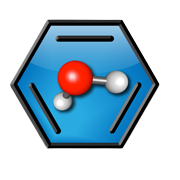Archives For Teachers
Journals in this archive provide articles from various authors, including professors at universities, colleges, national laboratories, and research centers. They cover the entire spectrum of physics and mathematics, including quantum field theory, relativity, and elementary particle physics, as well as theories such as string theory, cosmology, string theory, the Higgs boson, and cosmology.
Journals also contain information on the latest in mathematics and related fields, such as applications to the sciences, mathematics, engineering, and computer science. The archive also includes books, journals, and pamphlets that deal with various subjects, including advanced physics, mathematics, and physics.
The archive contains a wealth of material that could help people in their daily lives. These include books, articles, and news stories that are written for laypersons, which are an important tool in helping individuals understand the vast subject matter that surrounds them.
The articles in the archives are written on different branches of the physics field. Some articles are written for general audiences, while others are written for an audience of specialists in the field.
The library at the University of California, Los Angeles, is a great source for all types of research materials. The Archives house some of the world’s largest collections of scientific literature, in addition to materials dealing with other disciplines.
The Archives are a wonderful source for people who are interested in physics and mathematics, and who want to learn more about the theories and research in physics and mathematics. This information is a valuable tool for scientists and educators, as well as for students interested in the field.
The Journal can be obtained through the American Physical Society’s archive of journals, or the American Society of Physics Letters. In either case, the information contained within the journal is available to anyone who has a good idea of physics.
The Journal provides a wide variety of information on a wide range of subjects, from the most recent results in physics to materials and processes that have been around for hundreds of years. In addition, the Journal provides research material on various fields, such as computer science, aerospace, electronics, and nanotechnology. Materials in the journal may also include information on energy and optics.
One of the best places to look for the journal is the publication dates, which are usually printed on the cover and inside the pages of the publication. The publications are always archived by the American Physical Society, so you can search for specific information that pertains to a particular subject.
Information about new discoveries is also available on the Archives. You can find details on a research project or experiment that has been done, as well as information on publications that have already been published.
The Journal offers a number of other resources for individuals interested in learning more about the subject. It also maintains links to websites that feature related topics.
There are also Internet sites and books devoted to the subject. The journal also features newsletters that contain reports, articles, and research papers.
The Journal is accessible to everyone, regardless of their location or ability to use the Internet. If you are interested in obtaining the latest information on the subject, you can access the journal either online or through a subscription.
If you are interested in this type of physics, then this journal is definitely for you. The materials are constantly updated, and it’s easy to get a hold of the latest information in this exciting area.
You should also know that the Archives is not only available for people interested in the physical sciences. It can be used by teachers and researchers, as well.

